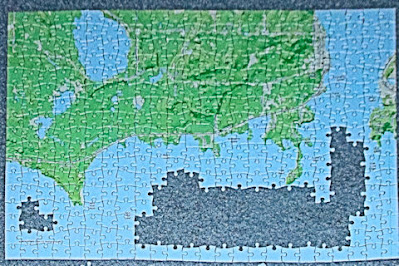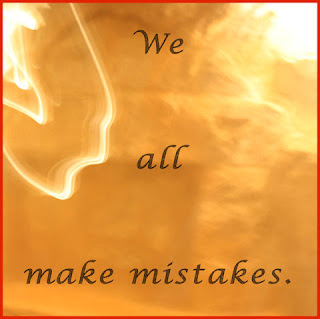I
enjoy jigsaw puzzles, so Roland gave me a “Personalized Hometown Puzzle” of
DeTour Village, Michigan, for Christmas. DeTour is the light gray spot on the
mainland in the upper right-hand corner of the puzzle. Unfortunately, the
people who made the puzzle didn’t put any thought into it. As long as it
contained DeTour, they didn’t care what was around it. And that’s why I finally
gave up, as you can see from the darker gray areas that show the mat (also a present
from Roland) below the puzzle.
Putting
some of the land together was difficult, but I enjoyed the challenge. Then I
got to Lake Huron. There are a few places with writing identifying reefs and
shoals, but most of it is simply a uniform blue. Even the shapes of the pieces
didn’t help because too many are similar on the two or three sides that matched
the part I had completed. But if I put them in the wrong spot, nothing I tried after
that would fit. I did replace several pieces with others in an effort to find
the right ones, but that didn’t work, either.
So
I gave up.
It
didn’t have to be that way. All the puzzle maker had to do was move the image north,
and possibly a little bit west, so that the puzzle area was mostly land.
Writing
fiction is like putting a jigsaw puzzle together. Each piece must fit in its
place to make a cohesive whole, and the story needs substance to give the
reader clues about where each piece fits. Too many passages that don’t add to the
story make a reader give up before finishing the book, which also loses the
author an audience for the next one.
That’s
where it becomes important to cut unnecessary material. Sometimes that’s all I
have to do. But if it’s not enough, maybe I need to move the story north
(figuratively speaking) and possibly a little bit west.
Because
jigsaw puzzles and stories both need substance.













